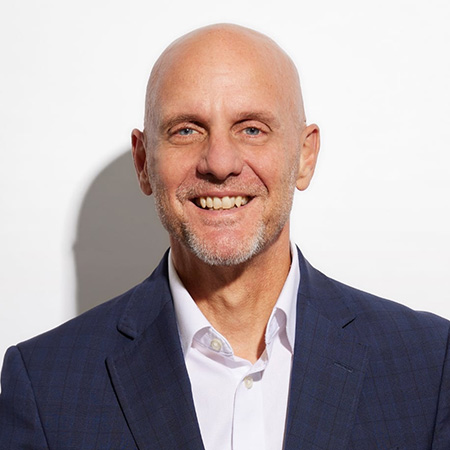Harbinger Health CEO Stephen Hahn On Early Cancer Detection To ‘Move The Needle’ On Survival
Executive Summary
Medtech Insight spoke with Stephen Hahn, ex-FDA commissioner and CEO of Harbinger Health, who attended SXSW, about the firm’s blood-based cancer test in development.
SXSW is known for attracting celebrities from the worlds of film, music and tech, and this year drew a unique combination of medical, regulatory and entrepreneurial medtech expertise in the person of Stephen Hahn.
Hahn, who led the US Food and Drug Administration through the start of the coronavirus pandemic in 2020 and is now heading up liquid biopsy start-up Harbinger Health, didn’t have to travel far to participate in the 13 March panel “The Science and Politics of Vaccines”, held at the Convention Center in Austin, TX.
Hahn told Medtech Insight he moved to Austin two years ago and came to SXSW “to learn, but also participate and contribute” in the event’s burgeoning health care and biotech environment. The 2023 conference included a Health & Medtech track covering topics such as femtech, equity, mental health and brain implants.
A longtime oncologist, Hahn was chief medical executive at the University of Texas MD Anderson Cancer Center in Houston prior to joining the FDA in December 2019. He left the agency in January 2021. Five months later, he joined Flagship Pioneering, described by its founder Noubar Afeyan as a “venture-production firm” because it creates and funds all of its own ventures in-house. Its portfolio includes COVID-19 vaccine maker Moderna, Inc., Tessera Therapeutics, which focuses on gene writing, and Generate Biomedicines, which applies artificial intelligence to designing novel proteins.
Harbinger Health launched in December 2021 with $50m of committed capital from Flagship Pioneering and Hahn at the company’s helm.
Harbinger aims to differentiate itself from large competitors in blood-based cancer testing, such as GRAIL, Inc.’s Galleri and Thrive Bioscience Inc.’s CancerSEEK test (now part of Exact Sciences Corp.), on multiple fronts.
“It’s the access, cost, positive predictive value, knowing that if the test is positive, it's really positive,” Hahn said. “And this early-stage sensitivity that really does distinguish our company.”
Hahn hopes to market Harbinger’s test for about $150. This compares to Grail’s Galleri multi-cancer early detection test, which has a list price of $949. Grail markets Galleri as a laboratory developed test and is currently pursuing FDA approval. Harbinger also wants to make a more accurate test with of 70% or higher positive predictive value (PPV), which would surpass those of Grail and Exact Sciences.
“It’s the access, cost, positive predictive value, knowing that if the test is positive, it's really positive. And this early-stage sensitivity that really does distinguish our company.” – Stephen Hahn
But Hahn is confident “there is plenty of room for all” in the global liquid biopsy market, which is expected to grow at a compound annual rate of 26.8% from 2020 to $6.1bn by 2025, according to Citeline’s Meddevicetracker report on the space.
Harbinger is currently conducting a 10,000-participant study with the Sarah Cannon Research Institute to validate and develop its early-cancer test. Hahn expects to announce results in 2024.
In a 14 March interview with Medtech Insight, Hahn discussed the future of vaccine development and innovation, Harbinger’s AI-enabled technology, opportunities and challenges in the liquid biopsy space, as well as the end of the Public Health Emergency. This article was lightly edited for length and clarity.
We showed that we could reduce barriers on that effort, work with the private sector, and if we didn't have a robust private sector, we probably wouldn't have gotten done what we got done. If you think about the hundreds of thousands of lives per month that are saved by having a vaccine, that's a pretty remarkable effort. We should be doing that more in the future. There isn't any reason why these great innovations that we're seeing in medicine and health can't be accelerated, understanding that we need from the regulators’ point of view appropriate oversight. The other major point is we learned and relearned the lesson that a lot of people in the US [and] around the world are left behind – don’t have access to care, products, etc. The private sector with government can help us solve that problem.
And we've got to be able to go back and adjust the test and the decision based upon real-world evidence that we collect. But I do think for complicated tests – that’s where Harbinger Health comes in – we’re a complicated set of cancer-based diagnostics, and there needs to be, in a high-risk setting, appropriate oversight. The consequences of clinical decision-making are substantial: Do you have cancer or not? Do you need work-up? Do you need a biopsy? Those are not minor, they’re life-altering and potentially life-threatening questions that need to be answered in advance and accurately.
We published in the New England Journal, when I was at the agency in August of 2020, a review of our experience with laboratory-developed tests with COVID. A substantial number, over 50%, had problems that had to be fixed. That's not surprising, right? What it means is let's work together with industry in an emergency and then fix them, but you need the oversight to do that. (Also see "'All Options On The Table,' Says Hillebrenner On Diagnostics Reform" - Medtech Insight, 23 Feb, 2023.)
The FDA and some folks in Congress have pushed for the VALID Act, which would provide more clarity around the FDA’s roles and responsibility. [The Verifying Accurate Leading-Edge IVCT Development Act sought to change the current regulatory scheme for clinical laboratory-developed tests and in-vitro clinical tests] You probably also know that in August of 2020, the Department of Health and Human Services – and I was on the public record being against this – we issued a statement saying that FDA did not have the authority to regulate laboratory developed tests. It’s a grey area and one that will be subject to litigation, in my opinion. Where I come down on this is that I think the agency definitely has a role to play in complex, high-risk diagnostic tests.
Secondly, I joined Flagship’s Preemptive Medicine and Health Security Initiative. We have a lot of chronic disease out there that will cause significant symptoms in people, but also could kill people. The question that we're asking is, 'What if we could identify these diseases before they manifest themselves?’ The apparent one is cancer, because if you diagnose cancer early, you have a better chance of surviving and the treatments are less toxic. If we can use science, company formation, to solve these problems, like we did with respect to vaccines and COVID, that’s a real win for everybody around the world.
We’re looking to push that positive predictive value to a number 70% or greater. That’s our development plan that allows the most clinical informativeness for physicians. We’re aiming for a price point of $150 or less for the initial screen. I’d love for it to be even lower, and the technology's just got to get there. But our biology allows us to even entertain that. And I am sure that others in the field are thinking the same thing, and they should, and there’s plenty of room for all of us. (Also see "Liquid Biopsy Revolutionizing Cancer Care, But Costs Continue To Inhibit Global Potential" - Medtech Insight, 29 Sep, 2022.)
We’ll also determine whether in some of the other less common cancers we see this signature. That's our base case and where we're starting with respect to this. Because this is a signature that appears to be linked to the development of cancer early on, we see it in quite a few cancers. It could be that we determine that the best use cases are single cancers or a group of cancers, and we're maintaining that optionality to add the absolute best impact for cancer patients.
We also realize that diversity is going to be very, very, very important in what we're doing, and that's not to suggest that this is entertaining a conversation about genetic diversity other than we know that families have different components to their genome, which affect who they are and what they're about biologically, and there's no reason to think that that's not true with cancer. And we have to sort that out and use that information as best as possible to make the best judgment and recommendation for physicians, providers, patients, consumers.
‘What are you going to need to see from us to actually make that transition?’ Now there may be some instances where companies don't want to fill out right approval, but I suspect many will. (Also see "Top 100 Outlook 2021: Medtechs Look To Build On Experiences Of Serving Global Markets In A Pandemic" - Medtech Insight, 4 Dec, 2020.)
Hopefully the companies have done what the diagnostic companies did early, which is collect real-world data after an emergency use authorization, collect those data, see how your performance is. I'm very confident that the FDA will want to see those data as part of this transition.

